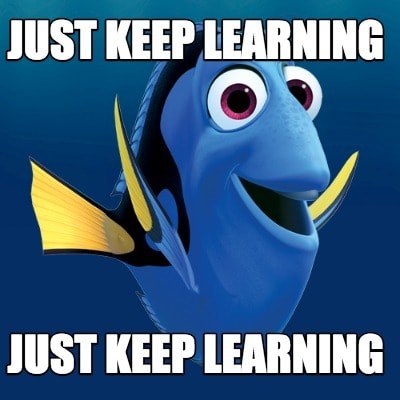One of the many things you'll hear when starting in most career fields is find a mentor. That's easier said than done. In a future post, I'll highlight some of the places you can find mentors, but first I'd like to convince you of the importance of mentoring.
Mentoring 101
So what exactly is mentoring? Mentoring is the practice of engaging in a mutually beneficial partnership between an individual who wants to grow in a field and one who has experience in the said field. This means that the mentee and the mentor are getting something out of the relationship. The mentee gets the guidance, wisdom, and knowledge the mentor shares, while the mentor earns an intrinsic reward. Now, let's highlight some of the reasons why you should get out there and hunt for your own mentor.
1. Successful Organizations Do It
Organizations at the top of their game are there because they understand the importance of mentoring. 71% of Fortune 500 companies have mentoring programs (Bolotin, 2018). That means that out of 500 of the most powerful companies ranked in the United States, 355 of them thrive with the use of mentoring programs.
These private programs are not available to each of us (unless we get hired), but they showcase the impact of mentoring. Do you think it is a coincidence that success and mentoring go hand-in-hand?
2. You'll Learn
If following the group is not your thing, then do so because you'll learn. You'll learn, and you'll learn a lot. As soon as you think you have fundamentals down, a good mentor will shake up your world (in a good way) and you'll be back at square one in a new set of fundamentals. This time you work through it, you won't be alone.
A great mentor is one that has been there before. They can teach you the things that you did not know you needed to learn. For example, did you know that when you are going to a technical interview, it is okay to say that you do not know how to solve one of the problems, as long as you explain how you would figure out to do so? Mentors will walk you through some of the complexities and nuances of your specific field (even outside of development!) and teach you things they wish they had known when they started.
3. Problem-Solver Access
Depending on your exact field, I'm sure you have spent countless hours Googling a specific problem. You may eventually solve it, but wouldn't it be easier if someone were available to point you in the right direction? For example, let's say you're working with Angular and you get an error and begin to panic. You troubleshoot the error and look at Stackoverflow to no avail.
A quick message to your mentor results in, It's a package error, Google ..., and before you know it you're on your way and you can chug along until you face the next error. When you do reach that next error, the insight the mentor gave you leads you to a solution much, much faster than before.
4. Guidance is Vital
Are you happy in your station? Where do you see yourself in 5 years? 10? How do you plan on getting there? Do you want to work hard? That's great if that's true, but a mentor can magnify your hard work by focusing it on things that yield higher professional returns.
Consider a junior software engineer. She is fresh out of college and has completed an internship and finds herself creating marketing emails for a large company. Eventually, she'll be able to begin working on the user interface for the company's SaaS offering. She begins to learn all about the languages that the organization uses.
A mentor would dissect the given scenario and provide guidance. Questions like: Do they use containers? If so, do you know enough about Docker and Kubernetes? and It's a SaaS platform? What cloud provider do they use? Do you know about DevOps?
They'll ask the tough questions so you don't have to and you can spend your time getting to the answer.
5. Companionship
This is the most important. It can be taxing to consider working after work to do better at work. Having a companion that has been through your struggles can be key. This is beneficial for both parties. You'll always have access to someone who understands what you're going through.
Plus, you can always bounce your ideas off of them and they will hopefully be brutally honest. A good mentor always is.
Conclusion
Get a mentor. A good one will make everything easier and a great one will change your life.
- Aaron
References
Bolotin, T. (2018, March 02). Most Fortune 500 Companies Have Mentor Programs. Do You?- PSA. Retrieved from https://www.psafinancial.com/2018/03/most-fortune-500-companies-have-mentor-programs-do-you/#:~:text=Over 71 percent of Fortune,formal training for new hires.






Top comments (0)